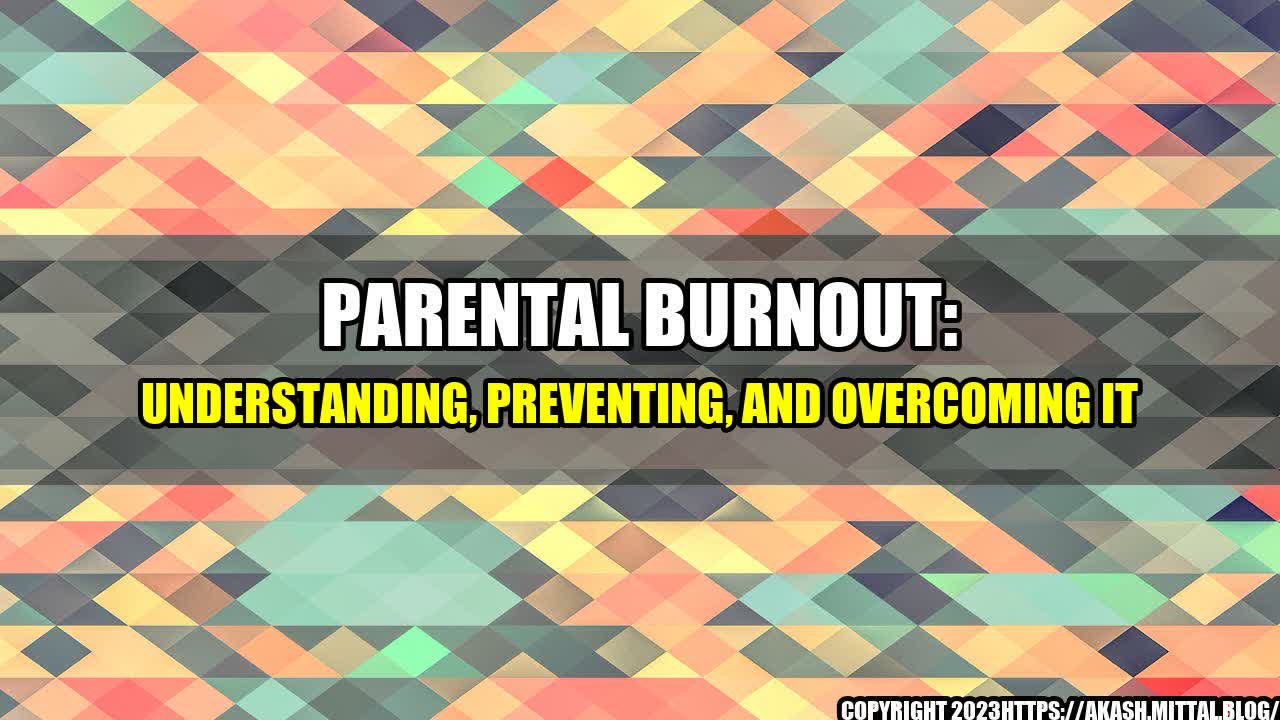


Picture this: It's 4 pm on a Sunday, and you're in the kitchen making dinner for your family. Suddenly, you hear a knock on the door. It's your neighbour, and she needs your help with something. You feel a sense of panic rising in your chest because you know that dinner needs to be ready in 30 minutes, the laundry is piling up, and you have a pile of emails to respond to. You're overwhelmed, exhausted, and burnt out. You snap at your neighbour, telling her that you're too busy and don't have time for her requests. As she walks away, you feel guilty and ashamed of yourself. How did you become the kind of person who can't even help a neighbour in need?
Parental burnout is a state of physical, emotional, and mental exhaustion that results from the overwhelming demands of parenting. It's a feeling of chronic stress and fatigue that can take a toll on your health, your relationships, and your daily life. Parental burnout can happen to anyone, from first-time parents to experienced caregivers, and it can be caused by a variety of factors, such as:
According to a recent study by researchers from Université Catholique de Louvain and Université Libre de Bruxelles, parental burnout affects about 12.9% of parents in the United States, 11.3% in Europe, and 7.6% in Asia. The study defines parental burnout as a combination of exhaustion, emotional distancing, and inefficiency in parenting. Some of the common signs and symptoms of parental burnout include:
As a mother of two young children, I've experienced parental burnout myself, and I know how debilitating it can be. There were days when I could barely get out of bed, let alone take care of my kids. I felt like I was failing as a parent, and I didn't know how to break out of the cycle of exhaustion, guilt, and despair. I also know many other parents who have gone through similar struggles, from single parents who are balancing work and parenting to grandparents who are raising their grandchildren. Parental burnout is a real and pervasive problem that affects millions of families worldwide.
The good news is that there are many ways to prevent and overcome parental burnout. Here are some practical strategies you can try:
In summary, parental burnout is a common and challenging problem that can affect any parent. It's caused by a variety of factors, such as chronic stress, sleep deprivation, and unrealistic expectations. However, there are many strategies you can try to prevent and overcome parental burnout, such as practicing self-care, seeking social support, setting realistic expectations, and practicing mindfulness and gratitude. By taking proactive steps to care for yourself and your family, you can reduce the risk of burnout and create a happier, healthier, and more fulfilling parenting experience.
Curated by Team Akash.Mittal.Blog
Share on Twitter Share on LinkedIn